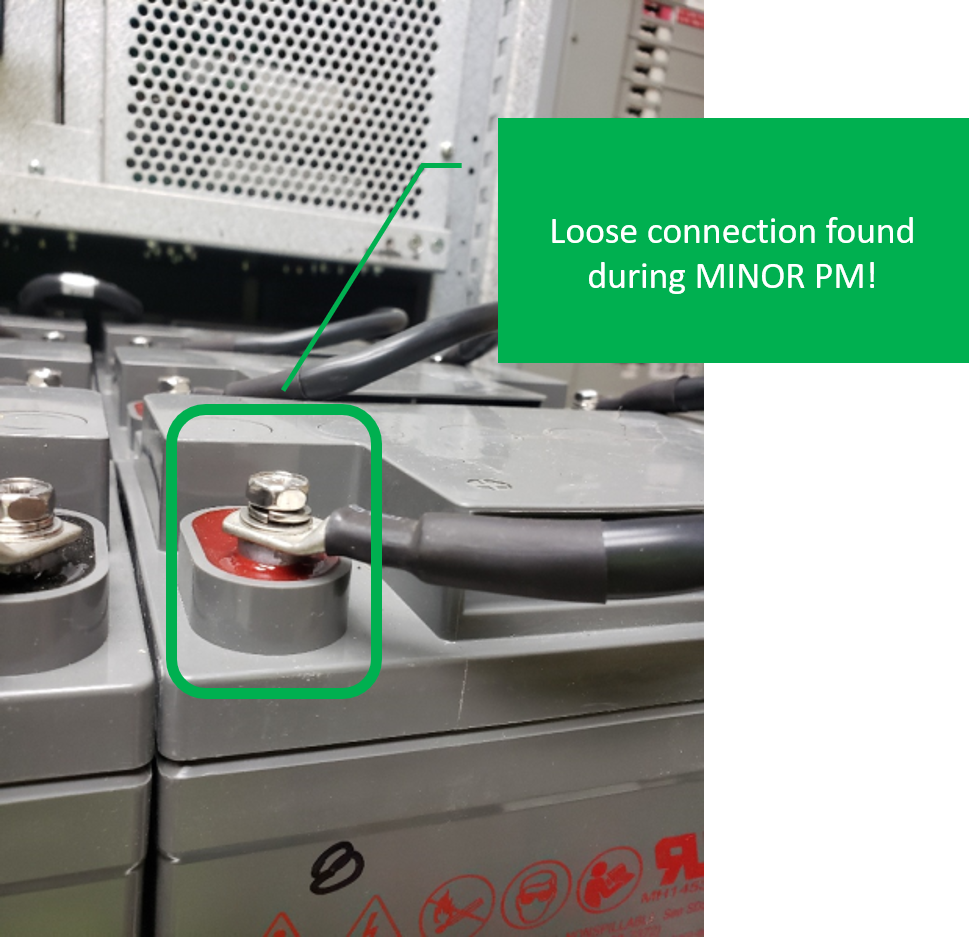

Nationwide Power™ is the leading provider in the critical power supply industry. Our core business is the sales and service of uninterruptible power supplies and UPS batteries, along with supporting other critical power components such as emergency generators, switch gear, and HVAC. We publish critical power related case studies, highlighting best practices and quality standards.
In this case study, we highlight batteries in a Liebert NXb, in which the Critical Power Professional™ found loose battery connections during a routine preventive maintenance (PM) inspection.
| Product | Liebert NXb UPS |
| Application | Manufacturing Data Center |
| Synopsis | During the first visit with a new customer, a regularly scheduled minor battery PM inspection was performed by the Critical Power Professional (CPP™), who identified three batteries that load tested as weak. |
| Preliminary Actions | Part of the CPP’s standard procedure for performing preventive battery maintenance is to load test each battery. While batteries may show correct voltages with a standard Fluke meter, placing a battery under load will identify true cell integrity and any degradation weaknesses. With the CPP measuring battery system voltages, currents, and ohmic values, a final load test of each battery identified three batteries load testing under 60% (56%, 41%, 17% respectively). |
| Resolution | Upon further inspection of the three weaker load tested batteries, the CPP found that all three batteries had loose battery cable connections, one of which was only finger tight. After torquing to the correct battery hardware specifications, the batteries were load tested again and readings were in acceptable ranges. Since the customer was under an emergency service contract with Nationwide Power, this preventive maintenance inspection was part of the included coverage and there was no out-of-pocket expense to the customer. |
| Root Cause | The battery connections were improperly torqued by the previous service provider. As a result of routine preventive maintenance inspections, system load loss was avoided. Additionally, loose connections could have caused excessive resistance/heat, leading to a possible “thermal condition” or fire. |
| Additional Reading | https://nationwidepower.com/case-study/145-another-reason-why-preventive-maintenance-is-so-important-liebert-nx-40kva/ https://nationwidepower.com/case-study/133-overheated-ups-batteries-in-eaton-93e-30kva/ |
We are your critical power infrastructure partner!

